Blog
No signal: how I swapped phone calls for bird calls in the Amazon
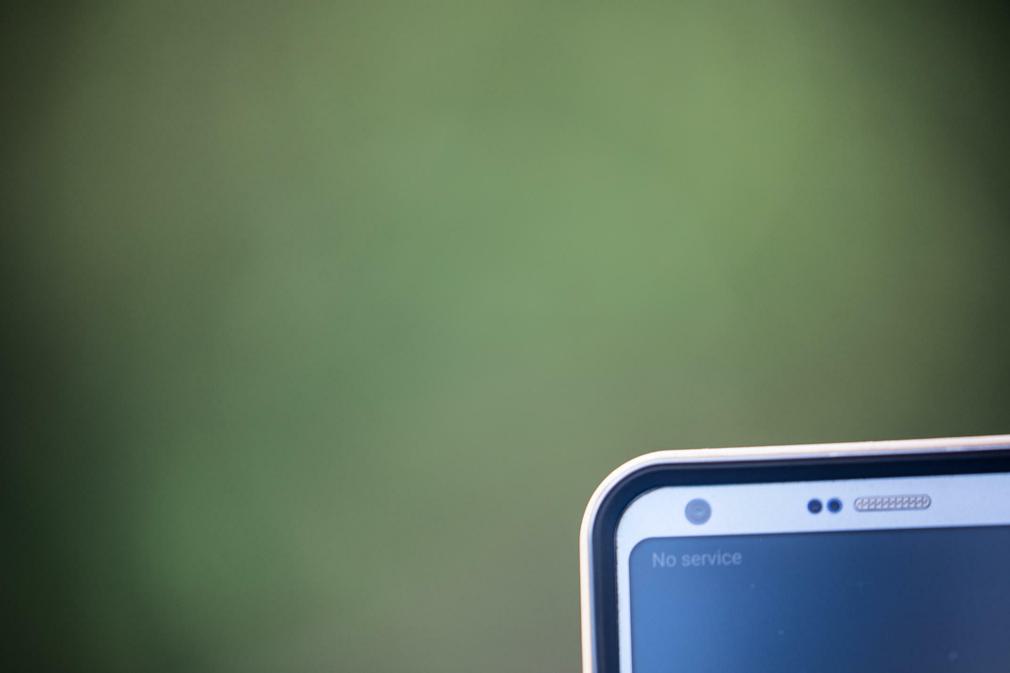
Imagine being without a phone signal for four days.
That's what happened to me as my phone failed to register a signal in the Amazon wilderness. Four days that moved me in unexpected ways and completely changed my relationship with my phone. I want to share the experience with you. I also want to share the Amazon with you, but I'll explain how that can happen at the end.
Enforced mindfulness
Returning to the original question - what feelings come to mind? Apprehension and isolation? Liberation and tranquility? Or perhaps even indifference?
When I first realised my signal was gone and not coming back anytime soon, the first feeling that hit me was actually apprehension - the idea of not being able to communicate with my wife Emma, back home in the UK. More specifically, apprehension about her apprehension. I'd warned her that radio silence was a distinct possibility, but one's imagination could concoct a multitude of ways for someone to meet their end in the wilds of the jungle. Even if the very notion couldn't be further from the truth.
I don't think that sense of guilt ever really left me, instead fading into the background and resurfacing at quieter moments between wildlife-spotting, forest walks and meal times.
"I was humbled by the jungle, awed by its stories and inspired by the people. It challenged me, made me think, made me laugh and made me care."
In the Amazon, days take on a more natural rhythm, aided in part by a stripping back of technology. The first thing that wakes me up at home is my phone. In the Amazon, the dawn chorus will do that. I rose early to head out onto the water for close encounters with cormorants, parrots, jacamars and horned screamers. Having failed to ever see a kingfisher sit still long enough to get a look at one in the UK, I saw at least half a dozen perched on broken branches.
Meal times spilled over as conversations flowed naturally. No one picked up their phone, checking for messages, anticipating a beep, Googling for this or that. We just talked and got to know each other. Stories of oil extraction, habitat destruction and community exploitation made me angry. Probing for the other side of the story, the bigger picture, made me think. It gave the Amazon a human face and a sense of vulnerability. How can something this big be so fragile and defenceless, left to the mercy of the decisions taken by mankind? More than anything, it has made me care, deeply.
Before we knew it, two hours had gone by. When does that ever happen at home? Our phones are scientifically designed, by people far cleverer than us, to be addictive. They hook us in, invading our attention space with constant updates on everything that is happening outside the realm of the here and now, the breakfast or dinner conversation. They teach us habits which we struggle to break; we check them when they beep and, more worryingly, we check them when they don't. Each time it steals away a bit more of our attention.
The Amazon broke the habit for me. Instead, I read about exotic fauna in the field guides scattered on the table and gazed out across the lake. Someone meditated on the jetty, others swapped travel stories. We all watched the thunder and listened to the rain.
In truth, I felt like a kid again, exploring the countryside around my Hertfordshire house. Back then, the definition of a smart phone was one with caller ID, tablets were what you took when you had a headache, you had to dial up to the internet using a modem, but only after 6pm and if no one was on the phone. The role of technology was confined to the TV and Sega Mega Drive. Now it is pervasive. But not here.
Bird calls replaced phone calls, 'tweets' recovered its original meaning. I was cut off from the world in both a physical and digital sense.

This picture puts me right back into the Amazon, evoking memories which I won't let go of easily
I was humbled by the scale and the beauty of it all, awed by the stories it revealed. I drew inspiration from the guides and biologists and brimmed with anticipation with every step as we crept through the forest. Night walks became my new favourite thing ever. I laughed myself silly when a capybara popped up unannounced less than a metre from me and then soaked my legs as it hurriedly ducked back under the surface, nearly making me jump out of my skin in the process.
And then there was something else. Some other emotion that struck me one afternoon like a thunderbolt. The Portuguese call it saudade - a melancholy longing for something missing, of incompleteness.
I'd just come back from a mid-morning forest walk. I had a desperate urge to try to describe to Emma how overwhelmed I felt when a family of cacophonous howler monkeys had danced through the canopy overhead, how we'd crept through the jungle below them, anticipating their next move to try and get a good look at them. I had a photo I wanted to show her. I mainly just wanted her to be part of the experience.
No service.
Instead, I sat for an hour or so, looking up at a huge grey tree which towered over the lakeside, 50 metres or so from my cabin. I'd been told a sloth was seen there a couple of days ago. I wanted to see it. Emma loves sloths (who doesn't?). When I told her I'd be visiting the Amazon for work, one of her first reactions was: "are you going to see a sloth?". I'm pretty sure that came before expressing concern for my safety. I waited and watched. Waited and watched. Waited and watched.
It never showed.
I decided it didn't matter. The mere idea of it brought me closer to her, to the outside world, beyond the jungle.
The following morning, just back from a morning canoe ride in the company of green parrots, I wandered over to the tree again. My fellow guests and the guides, with whom I'd became so well acquainted, must have been wondering where on earth this sudden sloth obsession had come from. I never did tell them.
And there it was, high up in the tree, camouflaged almost out of sight. A sloth. As sloth sightings go it was rather underwhelming. But I don't think it mattered. Of course it didn't matter, not in that sense. I didn't exactly see the whites (browns?) of its eye but it did unlock one more emotion in me. I wanted to tell Emma. But I couldn't. Which was obviously the point. Now tell me where else can move you in such an array of unexpected ways.
We all need our phones, but every now and again, perhaps we need to be without them to connect on a more meaningful, deeper level and to truly appreciate what we have. You know, the strange thing is, that sentiment can be applied as much to the people we love as the phones in our pocket.

This is the only screen you need in the Ecuadorian Amazon
Since the Amazon, my patterns of phone behaviour have changed. It can beep all it wants, I'll check it when I'm ready. I turn it face down or keep it in my pocket at work, catch up on the news only when I'm on the train home, Google something only when it really matters. I've barely been on Facebook since, taking refuge instead in a select number of private groups with family and friends, sharing what matters, rather than broadcasting what doesn't. We can swap photos on grey days, reminisce about shared experiences, ask each other how our days are going and show that we care.
Phones can be wonderful tools to connect us with the people we care most about. I'll keep that. Everything else? I can take it or leave it.
How to lose your signal in Ecuador
We know a place, deep in the Amazon. It's a little further down the Napo River than the other lodges, tucked away on the side of a big brown lake. Six cabins look out across the gardens to the water. Oropendola birds hang their nest in one tree, that sloth (sometimes) sleeps in another. Monkey sightings can interrupt meals, giant river otters and caiman live in the lake, frogs hide in the bushes after dark. And we haven't even set foot on a forest trail yet.
It's a special place, that we are proud to share.
Four or five nights in the Amazon could be paired with a three night visit to the cloudforest, staying in a wonderfully welcoming eco-lodge run by Tom and Mariela, and perhaps a seven night Galapagos cruise. Wildlife abounds and nature delivers its power to inspire, challenge and restore throughout the itinerary.
It's hard to relive the past or plan for the future when you're captivated by a group of squirrel monkeys in the Amazon, a treeful of hummingbirds in Mindo or a playful sea lion pup in the Galapagos. It holds you in the moment, in the here and now.
If you're inclined to agree, or want to learn a bit more, may I point you in the direction of the sample itineraries below.
Or the telephone. We get a great signal in Brighton.
Our Amazon holidays Get in touch Subscribe to The Pothole
The Pothole is Pura Aventura's popular monthly email. We share what we love, what interests us and what we find challenging. And we don't Photoshop out the bits everyone else does. We like to think our considered opinions provide food for thought, and will sometimes put a smile on your face. They've even been known to make people cry. You can click here to subscribe and, naturally, unsubscribe at any time.
The Pothole is Pura Aventura's popular monthly email. We share what we love, what interests us and what we find challenging. And we don't Photoshop out the bits everyone else does. We like to think our considered opinions provide food for thought, and will sometimes put a smile on your face. They've even been known to make people cry. You can click here to subscribe and, naturally, unsubscribe at any time.

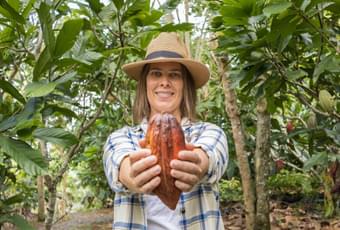
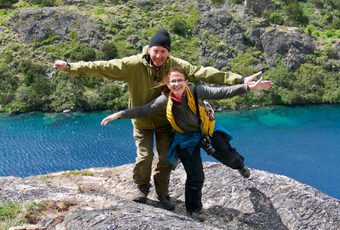


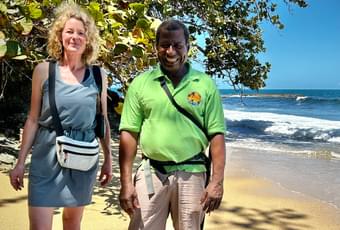
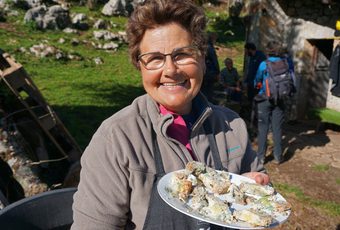
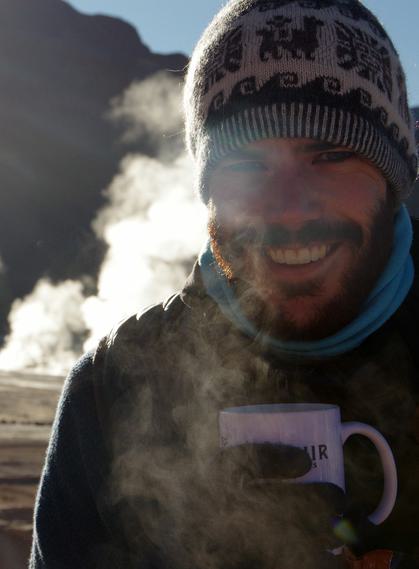
 By
By 

